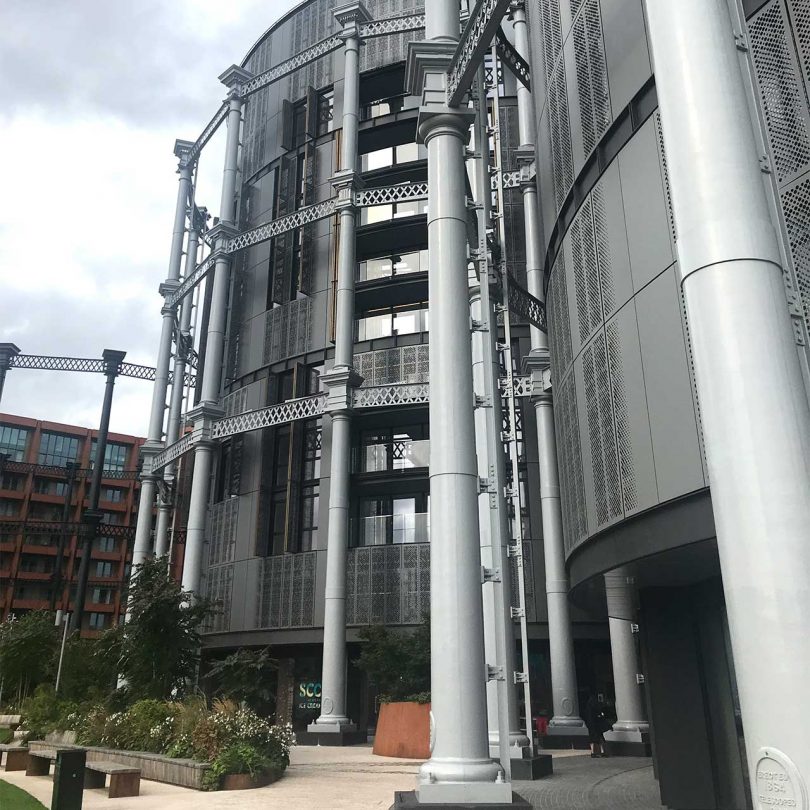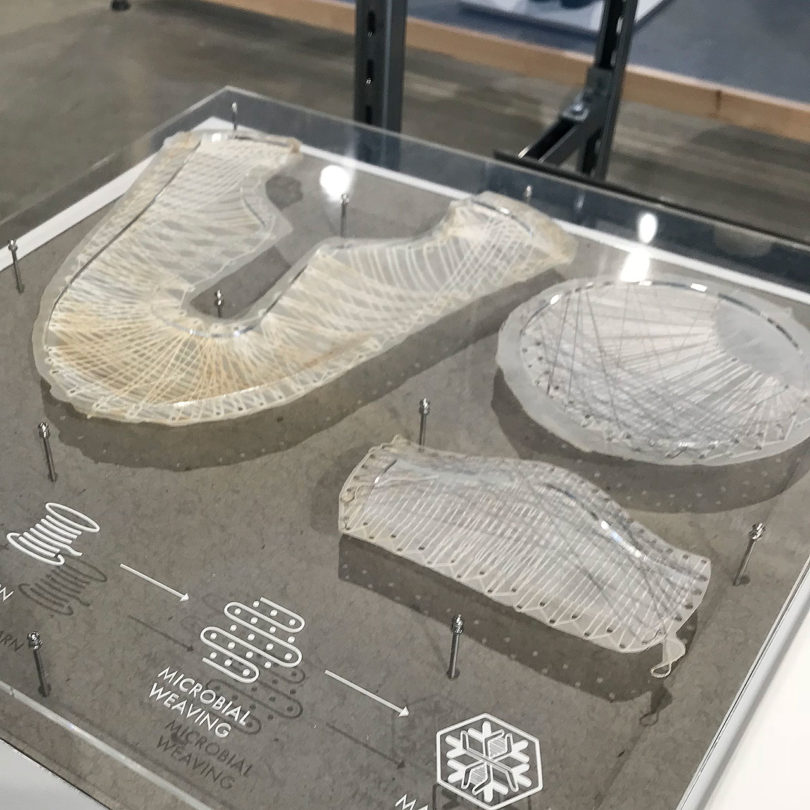The move of designjunction away from Granary Square might have left London’s King Cross bereft during the London Design Festival, but the relocation of Tom Dixon’s headquarters and flagship store to the Coal Office together with a raft of pop-up shows for the festival has in fact cemented the area as a buzzing design district.
The square gets its name from a restored granary building at the heart of King’s Cross – now home to world-famous arts college, Central Saint Martins, and the first show was Creative Unions – an exhibition of the work of the University’s recent graduates themed around the idea of design becoming an agent in the dissolution of boundaries. One of the highlights was Cohabits: Furniture Assembly for Two by Erica Jensen – flatpack furniture and assembly instructions designed specifically to suit the characteristics of individual couples interviewed by the designer.
Wheels4U by Yaohan Gu takes its inspiration from the improvised solutions people in developing nations develop for children with disabilities to create a system for making assistive products from the things they might find around them with the ambition of improving access to education – in China, 90% of children with physical disabilities are currently unable to attend school.
Jen Keane’s microbial weaving project is pioneering a new category of strong, lightweight and customizable materials by weaving with bacteria – she lays down a multidirectional warp and facilitates the creation of the weft by micro-organisms such as bacteria. Current prototypes are too hydrophilic, making them slimy when wet, but she’s hoping her fabrics will eventually provide an alternative to plastic-based high-performance sports fabrics, currently unachievable with natural materials.
PlasticScene curated by Modern Design Review‘s Laura Houseley and designer James Shaw explores the use of waste plastic as a raw material – a trend in evidence right across the London Design Festival. Metamorphism by Shahar Livne uses the naturally occurring phenomenon of ‘plastiglomerate’ where man-made waste materials fuse together creating a new material. Here she uses ‘lithoplast’, a futuristic hybrid of sediment and plastic waste, to explore clay-like vessels.
The Wealdstone Leg rack was created by Silo Studio in collaboration with the Wealdstone Youth Workshop from leftover polypropylene and cellulose fiber injection molded in multiple color combinations. The leg unit is a module that can be used in various guises.
Glow Vases by Kim Markel are made from a composite of post-industrial and post-consumer recycled thermoset resins, tinted with oil-based pigments and are inspired by the 1990s jelly shoes, hard candies and molded doll’s house furniture of her childhood.
James Shaw‘s Plastic Baroque Table is made using a plastic extrusion process James invented in order to process high-density polyethylene (HDPE) in a craft-like manner, embracing the structural properties and ‘plasticity’ of the material, while navigating the restrictions of industrial processes. James sources the HDPE as sweepings from the floor from the Veolia Recycling Facility, which sponsored this project.
The Blown Plastic Chandelier is also made from HDPE, this time sourced from waste milk bottles. Taking his inspiration from traditional glass blowing and industrial blow-molding methods, Chris Pearce designed the chandelier to be made by flattening and heat-pressing the plastic before inflating it with a mouth-piece that creates the organic forms seen above.
Silo Studio’s second piece in the exhibition is the PPPPP Bowl and Tray made from pressed polypropylene and paper pulp (hence all the Ps) that is injection moulded into a spaghetti-like form before being compression molded into the required forms.
Finally, Matter of Stuff was a pop-up concept gallery designed by London-based design studio Raw Edges, featuring pieces from some of the world’s most innovative designers – such as Phil Cuttance’s Herringbone objects (above).
from Design MilkDesign Milk https://design-milk.com/ldf18-granary-square-heart-buzzing-design-district/
from Home Improvment http://notelocreesnitu.tumblr.com/post/178918215819











No comments:
Post a Comment